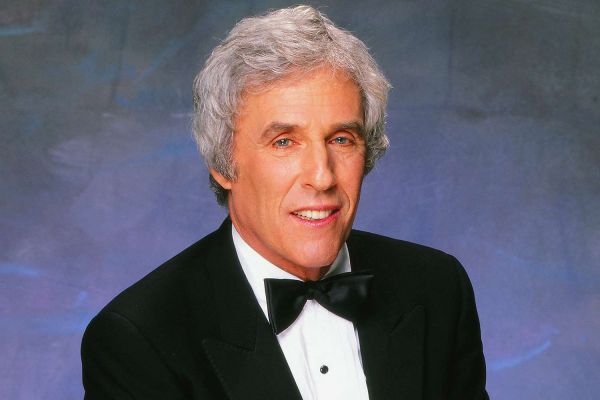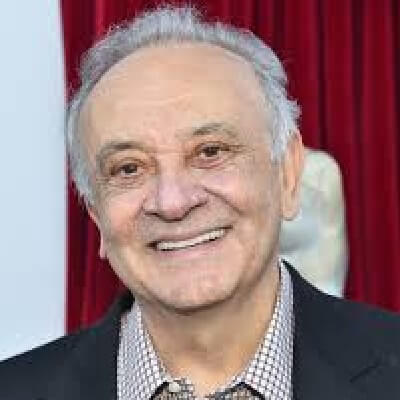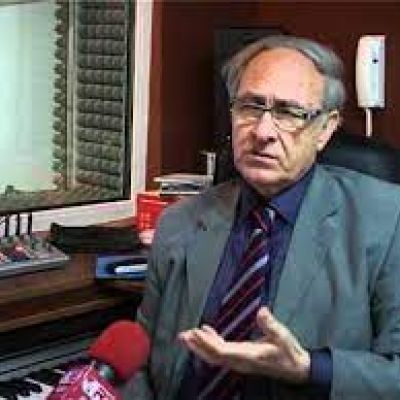Burt Bacharach was one of the 20th century’s final great popular songwriters. Together with Hal David, he composed songs that became their own standards.
They were sophisticated, catchy, commercially viable, and musically intricate, and dozens of them became hits during a career that spanned over 50 years.
His tunes transcended the rock period; they were neither trendy nor out of style.
Burt Freeman Bacharach was born in Kansas City, Missouri in 1928, but he spent his formative years in New York, where his father was a well-known newspaper columnist.
He gained an interest in jazz as a teenager, sneaking into various New York jazz clubs while being technically underage.
He studied music in Montreal and California, where he became acquainted with influential composer John Cage.
Bacharach completed his military service in Korea, and upon his return to civilian life, he began working as a composer and arranger, writing songs for a variety of performers, including actress and singer Paula Stewart, whom he subsequently wed.
During the late 1950s and early 1960s, he joined Marlene Dietrich as she toured Europe and the United States with her cabaret act.
Eventually, he joined forces with the lyricist David. They met in New York’s renowned Brill Building, just north of Times Square on Broadway, where numerous music publishers and popular songwriters had offices.
The Story of My Life, recorded by Marty Robbins, and Magic Moments, sung by Perry Como, reached No. 1 in the UK in 1957 and 1958, respectively.
Enduring
Page Contents
As the 1960s began, it appeared as though the team could do no wrong, as they delivered hit after hit for a string of famous musicians.
Gene Pitney’s 24 Hours From Tulsa, The Walker Brothers’ Make It Easy on Yourself, and Dusty Springfield’s I Just Don’t Know What to Do With Myself all charted.
Inspired by his second wife, actress Angie Dickinson, Bacharach composed songs for the movies, such as Raindrops Keep Fallin’ on My Head from Butch Cassidy and the Sundance Kid and Cilla Black’s smash Alfie.
The latter received an Oscar nomination for best song, as did the theme for What’s New Pussycat, performed by Tom Jones, and Dionne Warwick’s classic The Look of Love.
The duo’s most successful and ongoing relationship was with Warwick, a singer they recruited to make demos.
Beginning in 1962 with Don’t Make Me Over, she recorded over 40 Bacharach and David songs over the following decade, including Walk On By and Do You Know the Way to San Jose? and Never Again Will I Fall in Love.
Bacharach and David had written more than 100 songs by the beginning of the 1970s, but their partnership was deteriorating.
A musical adaptation of the 1937 film Lost Horizon was an expensive failure and resulted in several lawsuits. David and Bacharach’s cooperation ended.
Cleverness
His marriage to Angie Dickinson was also in peril, as was the demand for his songs.
Bacharach had a return in the 1980s, co-writing songs with his third wife, Carole Bayer Sager, such as the theme song for the film Arthur.
Together, they went on to write songs for Roberta Flack, Dionne Warwick, Gladys Knight, Neil Diamond, and Patti Labelle, including Making Love and That’s What Friends Are For.
Younger songwriters, such as Noel Gallagher of Oasis, admired Bacharach’s songs, while others desired to collaborate with him.
He collaborated with Elvis Costello and the rapper Doctor Dre and also starred in the Austin Powers flicks (as himself).
Bacharach performed at the Glastonbury Festival in June 2015 to a thunderous reception.
Due to the sheer familiarity of Bacharach’s music, the ingenuity of much of it was occasionally underestimated; it was deemed “elevator music” or “easy listening.”
Nevertheless, a typical Bacharach composition was rhythmically complicated, frequently throwing off the listener with abrupt changes in time signature and erratic phrasing.
The harmonies were occasionally unorthodox (Bacharach was rumored to have been influenced by the bebop jazz of his youth), and he excelled at creating the soaring musical hook that refuses to leave the imagination.
Above all, his compositions are musically sophisticated and demand nuanced interpretations from his vocalists; this may be one reason why subsequent generations of songwriters loved him so highly.
Also Read: M. Shadows Married His Wife After A 6th-Grade Romance





